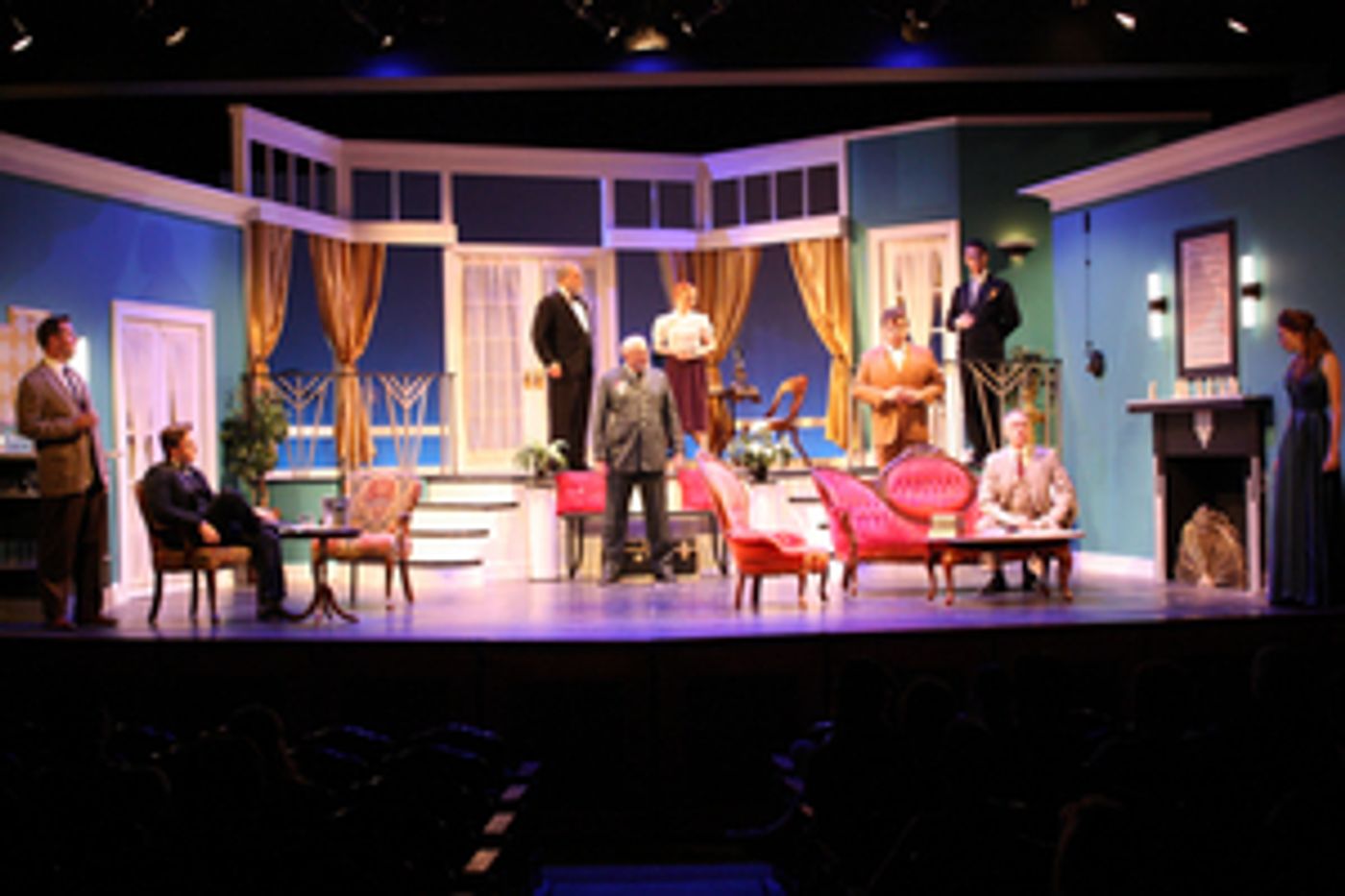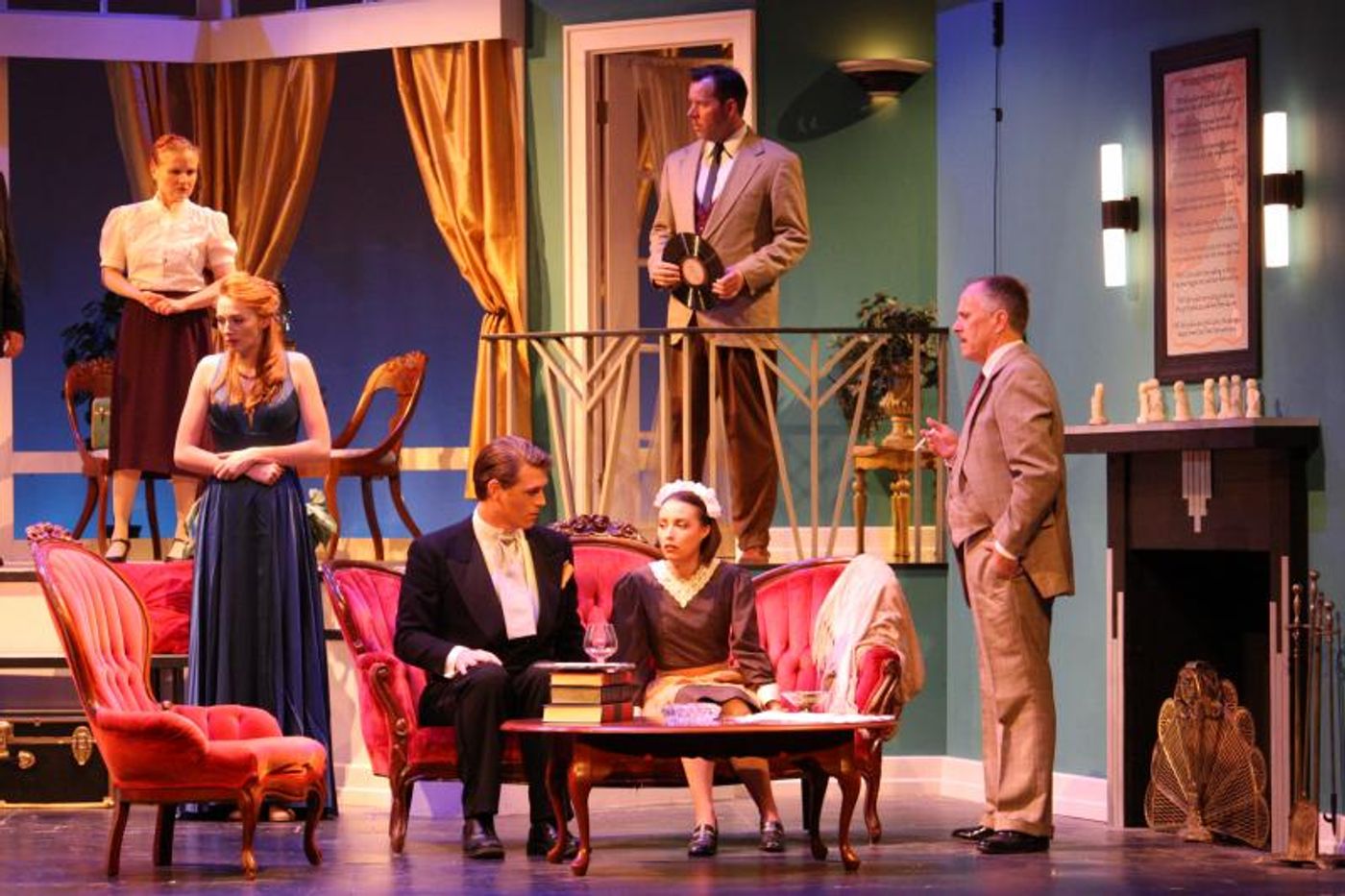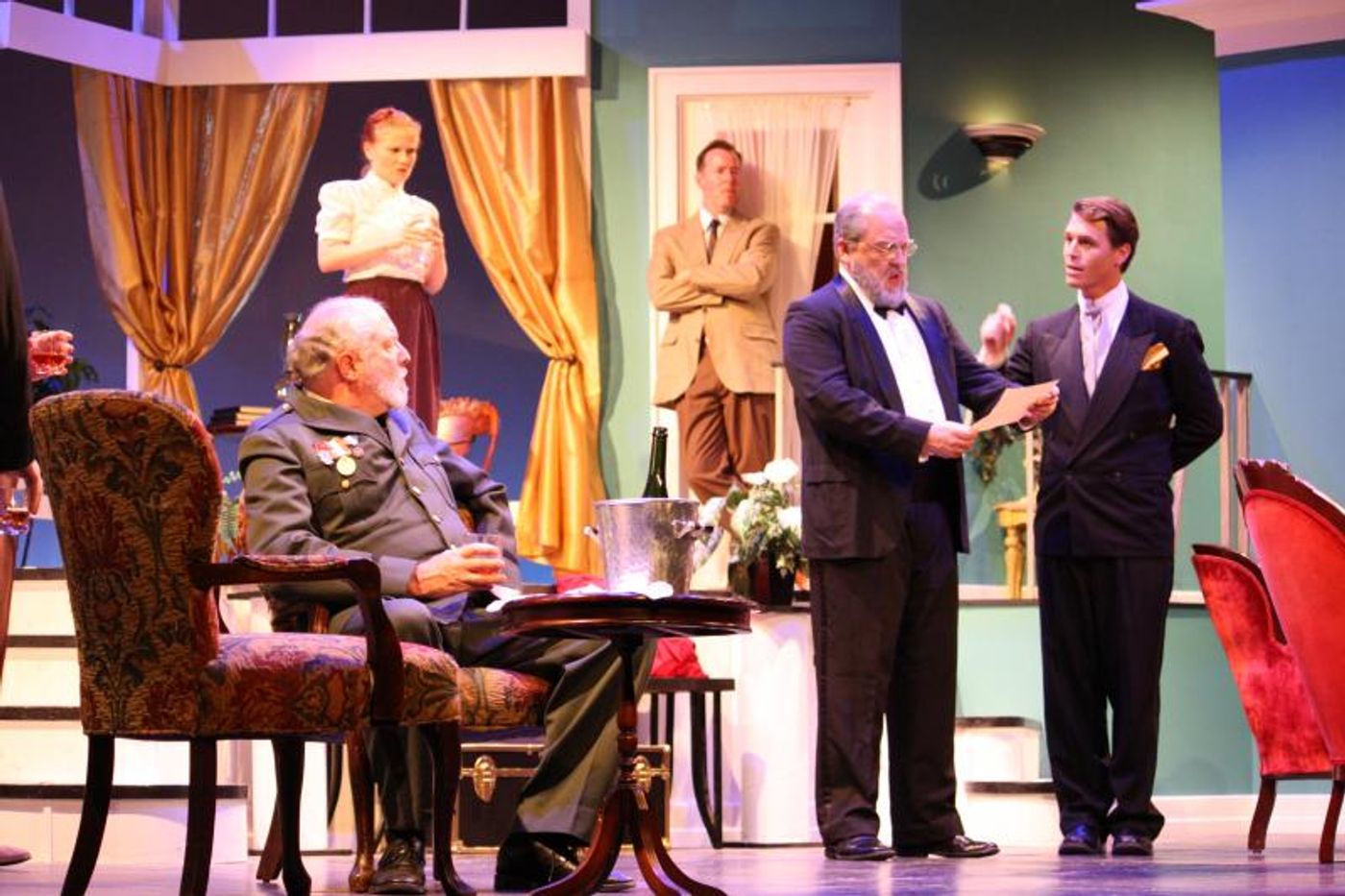Review: AND THEN THERE WERE NONE Keeps Us Guessing as the Body Count Mounts

Theatre audiences love mysteries. Action, intrigue, plot twists, murder, and maybe a jolt of romance - they deliver an intoxicating brew and demand your heightened attention. Yet there aren't nearly enough theatre mysteries to satisfy audience demand. The big names in the field are Christie and the Holmeses - Sherlock and Rupert. Either purloined from Arthur Conan Doyle's stories or cynically refashioned and rebranded for commercial consumption, Sherlock is the mystery detective personified. Rupert Holmes has had the chutzpah to craft two mystery musicals, Drood and Curtains, as well as two mystery dramas that premiered here in Charlotte, Accomplice and Thumbs.
Whether onstage or in bookstores, Dame Agatha Christie is the unchallenged queen of mysteries. A trio of Christie titles are constantly making the rounds: The Mousetrap, renowned as the longest-running stage production of all time since 1952; Witness for the Prosecution, especially after Billy Wilder's Oscar-nominated film in 1957; and, first presented as Ten Little N-Words back in 1943, AND THEN THERE WERE NONE.
Christie's zero-sum mystery is based on the most beloved of her 72 novels and one of the six best-selling novels of all time. There's absolutely no problem with name recognition at Theatre Charlotte, where few seats were left on opening night. Nor was there any sign that director Dave Blamy had any difficulty attracting sufficient local talent to fill his cast of 10 suspects/victims who arrive on Soldier Island, all claiming to have been invited by the same person they've never met. An eleventh cast member ferries the guests, the butler, and the maid from the mainland and then departs.
Or does he?
Whoever sent out the invitations was selective, choosing only people who were responsible for other people's deaths. They will all be victims, in the killer's mind, who deserve to die. A recording that the butler has been instructed to play calls out each of the guests' names and tells the group whose death he or she is responsible for. Justice is to be meted out to them all, for there is no escaping to the mainland.

That only begins to describe the fiendishness and arrogance of the killer who is on the loose, probably hiding in plain sight. Hanging over the mantle - and printed as an insert in our programs - is a poem, "Ten Little Soldier Boys," chronicling how the group dwindled until "there were none." As the dwindling survivors of the murderous rampage soon figure out, the poem has become a template for how the killer will snuff out each of them, following the order of the poem. The first "choked his little self," the second "overslept himself," the third "got left behind," and so on.
Each time one of the guests is murdered, a soldier boy figurine sitting on the mantle disappears or falls to the floor.
It's an elegant touch, an impressive sleight-of-hand, another affirmation that the killer is in control and always one or two steps ahead of his victims - another way he or she is toying with the ineffectual survivors who remain, mocking their efforts. And ours.
Chris Timmons' set design, one of the best and most beautiful he has built during his 13-year tenure at the Queens Road barn, has four exits on its two levels, allowing a certain amount of bustle and confusion as we track the whereabouts of our chief suspects. We're also rubbernecking where the next victim is, for we never know who that will be until late in the game - this is a diabolical game, right? - and only vaguely how the next murder will be done.
Blamy keeps the action flowing masterfully, varying his pacing, and getting Christie's suspects to engage with each other intensively. Once the game is afoot, we must believe that each one's demeanor - suave, artless, judgmental, analytical, scientific, or dignified - hides the heart of a maniacal murderer.
The Theatre Charlotte veterans are as reliable as we expect them to be. Caryn Crye drips piety and primness as spinster Emily Brent, saving her most severely moralizing barbs for young Vera Claythorne, whom she views as scandalously immodest. Johnny Hohenstein, not always on his best form on opening night, was sleazy and obnoxious as retired policeman William Blore when he hit his stride, both deceitful and maybe a little stupid. Timothy Huffman was actually a little less commanding than we've seen him before as retired General Mackenzie, perhaps too overcome by guilt and senility to be a serious threat.

On the other hand, Philip Robertson emerges as a natural leader and investigator as Sir Lawrence Wargrave, a retired judge who gets all the guests to respond to the crimes they're accused of, rousing suspicions and animosities among the group. Thanks to him, we see the rogues' gallery we're dealing with fairly clearly.
Among the Queens Road newcomers, Peter Finnegan takes top-of-the-class honors as adventurer Philip Lombard. After a startling local debut as Bottom in Actor's Theatre's Midsummer Night's Dream in August, Finnegan turns the pistol-toting Lombard from a semi-romantic hero into an Indiana Jones rascal, absorbing multiple rejections and altering the chemistry between him and Vera. Jonathan Stevens' breakout performance at CPCC came even more recently as Lord Wessex in Shakespeare in Love. Some of that same aristocratic conceit and bearing transfers well to Rogers the butler, and his toxic superiority to Mrs. Rogers also has a familiar ring.
As Mrs. Rogers, Cadie Pittman comes closer to a breakout role, giving the overworked maidservant a nice resentful edge. We keep guessing about Vera and her past because newcomer Quincy Stanford keeps her so unpredictable as she establishes bumpy relationships with both Lombard and Emily. It's hard to surpass Finnegan for reckless swagger, but newcomer Carson Edwards gives it a try as inconsiderate daredevil Anthony Marston. He's somewhat thwarted by the playboy outfit designed for him by costumer Chelsea Retalic, more apt to drink champagne than bourbon, and too carefree to carry a gun.
Rounding out our primary suspects, Will Lampe makes an interesting study as Dr. Armstrong. He might be a truly timorous, harmless, and useful physician, but Lampe's fearfulness could be a façade if he's furtively dealing out death with his medicinal syringes. Then he disappears! Dead? Lurking? The tension ratchets up suspensefully as we puzzle out whether he's the "red herring" in the "Ten Little Soldier Boys" poem or the latest addition to the body count.
Photos by Chris Timmons
Reader Reviews
Videos

